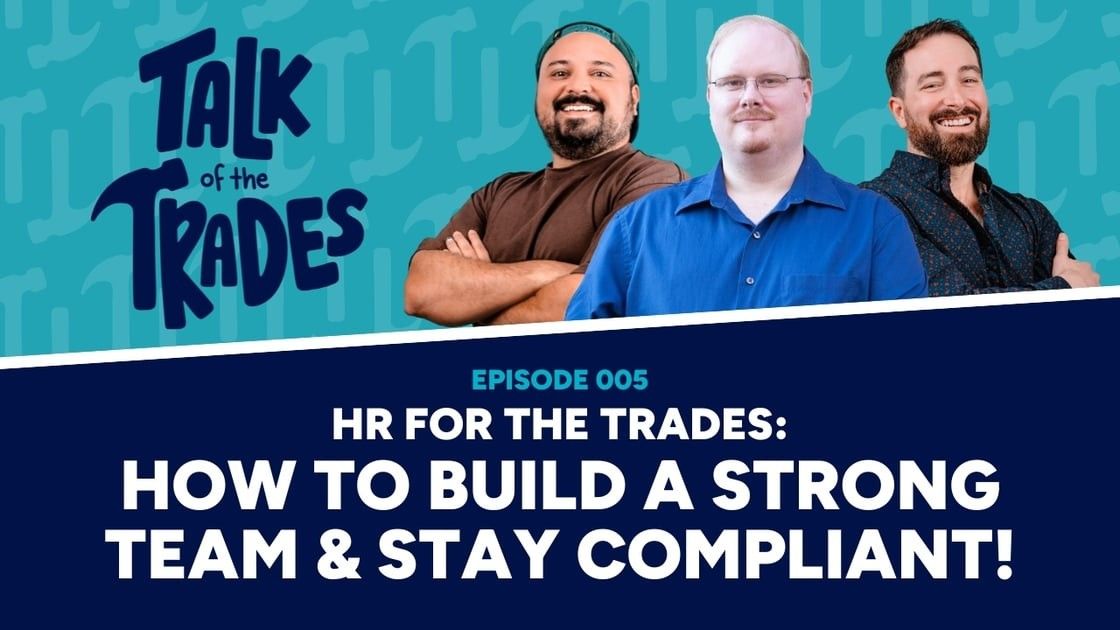Demystifying Exempt vs. Non-Exempt Employee Classification for the Trades
31 July 2024
You don't need to pay Overtime for Exempt employees - but how do you know which employees qualify?
It's time for everyone's favorite topic: are my employees exempt (typically salaried or commission, and you don't pay Overtime) or non-exempt (typically hourly, eligible for OT)? This matters because if you make assumptions - or worse, GUESS - you may land yourself in hot water with the government.
Here are some tips, specific to the Trades, for how to classify your employees.
According to the Fair Labor Standards Act (FLSA), ANYONE can be non-exempt/eligible for Overtime.
So start by classifying every employee as non-exempt, unless you find a reason from the list below to re-classify them.
Here are the four common reasons in the Trades that you might re-classify employees as exempt.
1. Executive Status.
These are your traditional executives or managers, who have direct responsibility over business matters, authority for two or more full-time employees, and meet a minimum salary threshold each week.*
2. Administrative Status.
These are typically administrative assistants, small business office managers, or bookkeepers, who have authority and influence in the company but probably no direct control over other employees. To meet this status they must do non-manual labor, be allowed to use their own discretion in significant matters, and maintain the minimum salary threshold.*
*Minimum Salary Threshold - this number is in flux at the moment. Prior to 7/1/24, the Federal threshold was $684 per week ($35,568/year). From July until the end of 2024 it's set at $844 per week ($43,888/year), then it'll increase to $1,128 per week ($58,565/year) in January 2025, pending legal review. Some states have even higher minimum thresholds, so reach out to us with questions about the details.
3. Outside Sales Status.
This was developed for traditional door-to-door salespeople, but it could apply to those acting as comfort advisors. They work away from the main office location and sell products or services as their PRIMARY job duty. Be very careful - the DOL does not consider a "Selling Tech" a salesperson, since they are technicians first and foremost, so this exemption cannot be broadly applied across your company.
4. Exempt Status 7(i).
The nuances of this one make it relatively uncommon for the Trades. This status is for "commissioned employees of a retail or service establishment" where at least half their wages come from commission and they earn at least 150% of minimum wage. The biggest issue here is the "retail or service establishment" requirement. This may be permissible for home services like painting, general handyman repairs, computer or appliance repair, or lawn services. But the DOL has decreed that the industries of HVAC, plumbing, electrical, garage doors, and roofing are definitely construction, so it cannot apply if you're in those fields.
Okay, you now know who gets Overtime pay. And it's as easy as giving them 1.5x their base wage for every hour per week over 40, right? Oh, if only it were that easy! If employees get bonuses/commissions/spiffs along with an hourly wage, or you're in a fun state like California, there are all sorts of rules and calculations to get this right. Need help? I know a Guy... 😉

Written warnings can be key in managing employees, so you need to know both the art and the science of doing them correctly. These tips for what to include - and what NOT to include - in your written warnings will help you to communicate clearly to your employees, and get you set to defend yourself in a potential legal claim against you.

Reasonable Accommodations in the workplace are no joke - you can get into serious legal trouble if you don't comply with the ADA. Yet here's a case study on a company who terminated someone for an issue directly related to their disability and was not held legally liable. Check out the details of how this might apply to your business.








